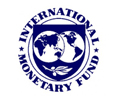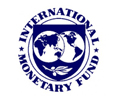European growth will persist but at rising fiscal costs, IMF says

Eurozone economic growth will persist despite headwinds from US tariffs, but this will result in higher government spending and rising debt, the International Monetary Fund (IMF) said on Tuesday in its World Economic Outlook update.
The 20-nation currency bloc has been surprisingly able to withstand trade tensions this year and policymakers are still debating whether this is sustainable or whether the impact is still to come given the United States is by far its biggest export market and the effective tariff rate has risen to 13% from 2.3%.
Economic growth in the euro area is now seen at 1.2% this year, above the 1% forecast in July and in 2026 seen at 1.1%, a downgrade from 1.2%, the IMF said.
The figures show a cumulative downgrade compared to projections made last year as uncertainty takes a toll and even this relatively good performance comes at a high fiscal cost.
“Increasing uncertainty in various areas and higher tariffs are the main drivers,” the IMF said. “Private consumption’s recovery from higher real wages and fiscal easing in Germany in 2026 will only partially compensate.”
The fiscal balance will largely worsen due to Germany’s big push for defense and infrastructure spending, raising the euro area’s debt-to-GDP ratio to 92% in 2030 from 87% in 2024, the IMF said.
With relatively stable growth potential and increasing debt, inflation is also likely to remain at a level close to the European Central Bank’s target of 2% and this is why the IMF estimates that deposit interest rates will remain stable at 2% until 2029.
The IMF also noted that exporters as a whole have not absorbed the US tariffs and export prices of German cars sold to non-EU countries have so far remained relatively stable, a sign of hope for Europe’s large industrial sector.
However, the impact of protectionist measures on the global economy is likely to increase as the number of factors that provide temporary relief decreases.
“There are increasing signs that the adverse effects of protectionist measures are starting to show,” the IMF said. “As the global economy becomes increasingly fragmented, risks to that outlook are increasing.”
The report argues that strategies that keep trade activity looking resilient, such as diversion and rerouting of trade, are costly and the barriers to policy change are becoming apparent in more recent data.
Source: Reuters
